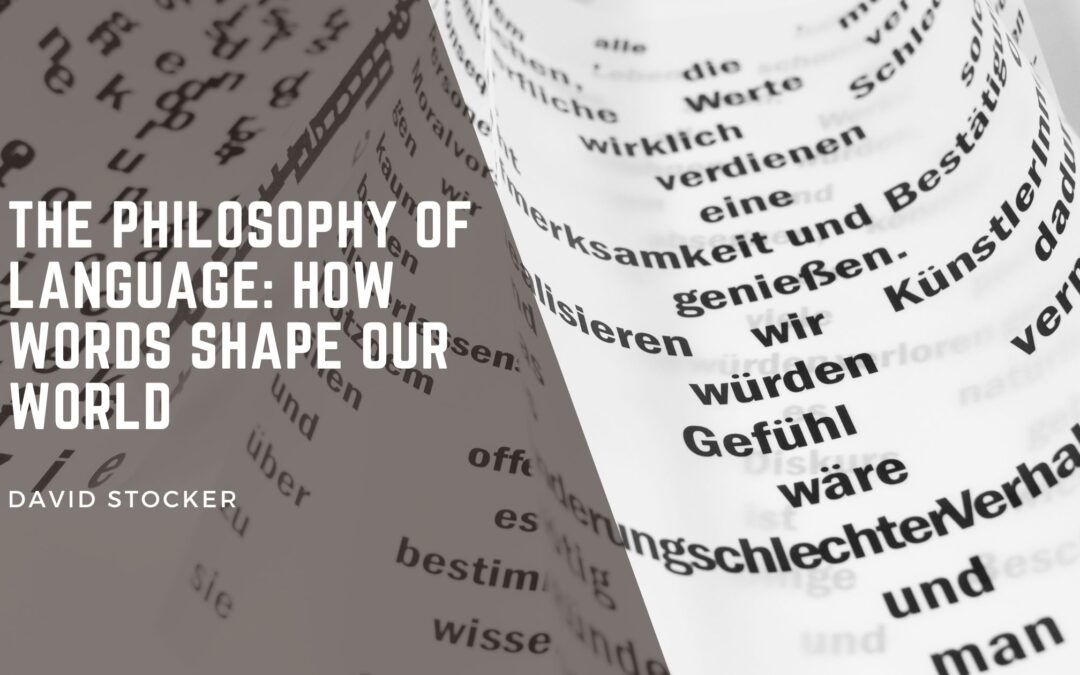Language is more than just a tool for communication; it is the very framework through which we understand and engage with the world. The philosophy of language explores how words shape our reality, influence our thoughts, and define our relationships with others. From the most superficial conversations to the most complex philosophical debates, language is central to the human experience. This blog delves into the philosophy of language, examining how words construct our world and the implications of this for our understanding of reality.
1. Language as a Constructive Force
One of the central ideas in the philosophy of language is that words do not merely reflect reality; they help construct it. This idea, often associated with linguistic relativity or the Sapir-Whorf hypothesis, suggests that language influences how we perceive and think about the world. For instance, languages that have multiple words for different shades of a color might lead their speakers to perceive those shades more distinctly than speakers of languages with only one word for the color.
Language shapes our perception of the world and our social reality. Labelling and categorising things can influence how we understand social concepts like race, gender, and class. Words carry connotations and cultural meanings that can reinforce stereotypes or challenge social norms. For example, the terms we use to describe people can either empower or marginalize them, highlighting the power of language in constructing social reality.
2. The Limits of Language
Another key concern in the philosophy of language is language’s limitations. Ludwig Wittgenstein, one of the most influential philosophers in this field, famously stated, “The limits of my language mean the limits of my world.” This suggests that our ability to understand and describe reality is constrained by the language we use. Without word for a particular experience or concept, it becomes difficult to grasp or communicate it fully.
This limitation has significant implications for philosophy, science, and everyday life. It raises questions about whether we can ever truly understand the world or whether our understanding is always mediated and limited by language. Some philosophers argue that there are aspects of reality that are ineffable—beyond the reach of language. This idea challenges the notion that language can never fully capture the richness and complexity of human experience.
3. Language and Meaning
A central question in the philosophy of language is how words acquire meaning. Theories of meaning explore how words, symbols, and sentences represent objects, ideas, and actions in the world. One influential theory is the referential theory of meaning, which holds that words gain meaning by referring to things in the world. However, this theory has been challenged by more complex views, such as the use theory of meaning, which argues that meaning arises from how words are used in specific contexts.
The question of meaning also intersects with issues of interpretation and communication. How do we know that the meaning we intend when we use a word is the same meaning that others understand? This question addresses the challenges of ambiguity, context, and interpretation in human communication.
4. Language and Power
Language is also a powerful tool for shaping and controlling social interactions. How language is used can reflect and reinforce power dynamics within society. For instance, the ability to define terms and control discourse can be a form of power. Politicians, media, and institutions often use language strategically to influence public opinion, shape narratives, and control the flow of information.
Critical theories of language, such as those developed by Michel Foucault and other postmodern thinkers, explore how language is tied to power and ideology. They argue that a society’s dominant language and discourse can marginalize certain groups and perspectives, shaping what is considered “normal” or “acceptable” and excluding alternative viewpoints.
Conclusion
The philosophy of language reveals that words are not just passive descriptors of the world; they are active agents in shaping our perception, understanding, and interactions. From constructing social realities to influencing thought and power dynamics, language plays a central role in human life. By examining how language shapes our world, we gain insight into the nature of reality, the limits of our understanding, and the complex ways in which we communicate and relate to one another. As we continue to explore the philosophy of language, we uncover deeper truths about the human condition and our world.

